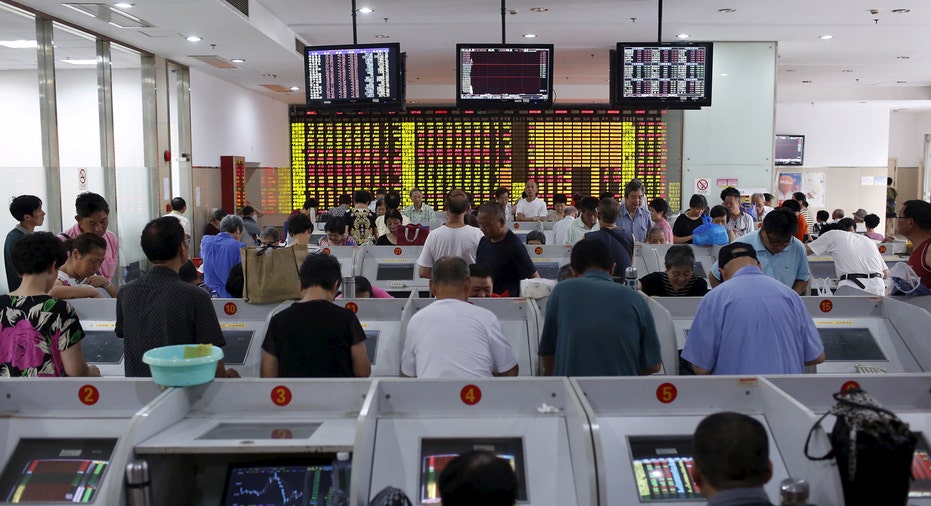Asia Stocks Rise as Markets Await U.S. Jobs Data

Markets in Asia largely recovered from a Deutsche Bank-led decline in financial stocks in the morning, as attention moved to Friday's release of U.S. jobs data.
Australia's S&P/ASX 200 reversed early declines to trade up 0.3%, though mining stocks continue to be weighed down by softer commodity prices. BHP Billiton traded 0.9% lower while Rio Tinto dipped 0.8%.
Iron-ore and steel futures in China fell as concerns lingered about Beijing's plans to cut steel-mill capacity in the country. Higher steel prices during the Lunar New Year have resulted in increased output, even as housing-sector demand for steel slows.
Hong Kong's Hang Seng Index added 0.4% while the Shanghai Composite declined 0.1%.
Korea's Kospi advanced 0.6%, recovering from Monday morning's one-month low brought on by North Korea's missile tests and China's ban on tour groups to South Korea.
"Stocks in Asia have been up strongly on earnings expectations," with some of that enthusiasm tapering off at the end of earnings season, said Hao Hong, head of research at BOCOM International Securities. The market's focus will move to the release of U.S. jobs data on Friday, he said.
Strong numbers would all but confirm a March interest-rate increase by the U.S. Federal Reserve. That would indicate the U.S. economy is in good shape, which would be good for Asian stocks. However, a rapid U.S. rate-increase cycle might trigger capital outflows from Asian emerging markets to higher-yielding U.S. assets, which would be bad for Asian stocks.
The specific concern for traders this week, however, is about the immediate impact on Asian stocks most exposed to U.S. rate changes, such as banks and insurers.
"With the jobs data due Friday, you are going to see a lot of volatility in interest-rate sensitive stocks," said Andrew Sullivan, managing director of sales trading at Haitong Securities International.
Higher U.S. rates could also see some Asian currencies weaken against the dollar. That is keeping traders on alert, making regional currencies more volatile than usual.
On Tuesday, the Reserve Bank of Australia left its cash rate target unchanged at 1.50% while citing low inflation and medium-term risks to growth in China, a big consumer of its raw-material exports.
The Aussie dollar fell 0.24% in the five minutes after the decision was announced before recovering. The moves reflected an unwinding of hedge-fund positions taken ahead of the RBA decision, said Sean Callow, a senior currency strategist at Westpac in Sydney.
Meanwhile, unclear signals from the Bank of Japan keep traders there on tenterhooks, said Amir Anvarzadeh, the global head of Japan equity sales at BGC Partners. "People want to see the BOJ introduce a steeper yield curve," he said, referring to a policy to keep yields on long-dated Japan government bonds firmly above zero.
The interest-rate gap between the U.S. and Japan is set to increase, said Takuji Aida, chief economist for Japan at Société Générale, which will hit the yen. He expects the dollar to buy 120 yen by the end of this year, from 113.90 yen in Tuesday's trade.
Early in the session, financial stocks in Asia were roiled by overnight declines in sector bellwethers. J.P. Morgan Chase ended 1% down in New York, taking the Dow Jones Industrial Average lower by 0.2%. The selling in financial stocks began Monday, with Deutsche Bank ending down 7.9% in Frankfurt as the market digested news that the company was seeking 8 billion euros ($8.5 billion) in cash from shareholders.
Malaysia's benchmark stock index was largely unmoved despite rising tensions over the killing of Kim Jong Nam, the half brother of North Korean dictator Kim Jong Un, at Kuala Lumpur International Airport in February. On Tuesday, Pyongyang temporarily banned Malaysians from leaving North Korea, and Malaysia responded with its own departure ban.
Biman Mukherji and Kosaku Narioka contributed to this article.
Write to Kenan Machado at kenan.machado@wsj.com



















